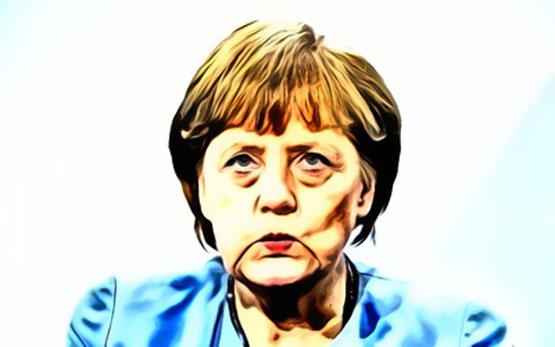
That's the direction things appear to be taking after the election of two determined leftists as co-leaders of the Social Democratic party (SPD), the junior member of Germany's ruling coalition.
When Saskia Esken and Norbert Walter-Borjans campaigned for the party leadership against Finance Minister Olaf Scholz and Klara Geywitz, they spoke scathingly about the coalition. Esken declared it had "no future." The more cautious Walter-Borjans said he was "firmly convinced" it couldn't meet the SPD's demands. That probably helped them win the leadership election, in which only 54% of the party membership took part.
But their victory on Saturday, with just over half of the vote, doesn't give them a mandate to pull the ailing party out of government. Such a momentous decision would have to be taken by the party conference set for this weekend. While surprises are possible, it's more likely that the SPD will vote instead to amend the 2018 coalition agreement.
On Sunday, the new leaders spoke on German TV about the revisions they'd like to see. Walter-Borjans focused on the government's climate package, now making its way through the parliament; he'd like a much higher carbon price than the currently envisaged 10 euros ($11) per ton of CO2 and, accordingly, higher spending to offset that price for low-income households.
Esken called for more infrastructure spending to make up for years of underinvestment at a communal level. Plugging that hole, estimated at more than 138 billion euros ($152 billion), would require deviating from the balanced budget policy of the senior coalition partner, Chancellor Angela Merkel's Christian Democratic Union (CDU) - the famous "black zero."
The new leadership duo, then, isn't going to call for their party's unconditional withdrawal from the coalition. What Walter-Borjans and Esken really want is to try to extract concessions from the CDU, using a two-year revision clause in the current coalition agreement to the maximum. Whether they have the leverage to get much is doubtful.
Both uncharismatic functionaries, they don't have enough influence on their own party, especially its elite cadre made up of the heads of state governments and the parliamentary faction.
The latter isn't ready for a snap election that the SPD is highly likely to lose miserably. A split in the party as its senior politicians abandon a sinking ship is a fearful prospect for the new leaders, forcing them to go softer on Merkel than they perhaps would like.
The CDU, for its part, theoretically could try running a minority government (though that's never been Merkel's preference). Besides, it stands to come first in any early election, and perhaps to form a new ruling coalition with the Greens, completing the SPD's descent into irrelevance.
So, as the new SPD leaders try to stake out a tough negotiating position, CDU politicians, starting with the party leader, Defense Minister Annegret Kramp-Karrenbauer, are doing the same, insisting that the revision clause doesn't imply a renegotiation of the coalition treaty.
This doesn't mean the CDU won't talk. It will aim to placate, if not the fiery Esken, then the SPD elite and broader membership, which gave a stronger vote of approval to the coalition deal last year (66% support on a 78% turnout) than to the new leadership duo at the weekend.
The behind-the-scenes bargaining has already begun, and it will affect the outcome of the weekend's SPD conference. Scholz, whom the new leaders formally support as finance minister, has plenty of backers, especially among the party brass, and he's not in favor of abandoning the black zero policy.
This group within the SPD will work to prevent the conference from making this demand, a potential coalition-breaker. If the SPD's final proposals stop short of such sweeping ambition, it wouldn't be impossible for the CDU to allow some extra spending: Economic forecasts tracked by Bloomberg predict a German budget surplus of 1% of economic output this year.
What's happening to the SPD is a tragedy for the party, whose new leaders hardly have the magnetism needed to draw voters back to a weakened, directionless political force. But it's not a tragedy for the last Merkel government - at least not yet.
"We have started quite a lot of things, but there's still much to do," the chancellor remarked in a speech to parliament last week. "That's why I believe we should work up to the end of the legislative period." Then she added: "I'm up for it. Great if you are, too."
Though she's acted increasingly tired and distant, she's definitely capable of one last negotiation with her coalition partners to avoid disrupting the stability she's proud to have brought to Germany. The opportunity is the SPD's to waste, and the consequences of doing that would be largely the SPD's to suffer.
Sign up for the daily JWR update. It's free. Just click here.
(COMMENT, BELOW)
Leonid Bershidsky is a Bloomberg View columnist. He was the founding editor of the Russian business daily Vedomosti and founded the opinion website Slon.ru.


 Contact The Editor
Contact The Editor
 Articles By This Author
Articles By This Author